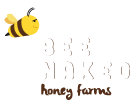Pollination Service

We are committed to provide a high quality, managed pollination service, using good quality hive equipment with well selected, pollination strength bee colonies.
Our goals:
High quality equipment: we ensure that we use quality equipment suitable for pollination. All hives are bee-tight to ensure safe transport. We also constantly invest in new equipment to enable an effective service.
Bee colonies selected to be of pollination quality and strength: We ensure that our bee colonies are properly managed and prepared to meet pollination strength guidelines. This ensure that bee numbers are sufficiently high and new brood exists to ensure the continued strength of the colony. We ensure and that there is not too much honey in the hive thereby forcing bees to forage on the target crop. Colonies will average at least 8 frames of bees and 4 frames of brood. Our pollination units normally comprise a super in addition to a brood box. This is done to alleviate heat stress – particularly given the hot spring days which we often have in the Lowveld – and to avoid swarming-off of colonies.
Using technology to monitor and improve our service: Information is important. We use our Bee Info App, an inhouse developed application. The application feeds through from cell phones as collecting devices, to a cloud server and then to desktop analysis to monitor, amongst others: hive placement, hive inspections and movement of bee hives. Each beekeeping team uploads information which is instantly available for management use. Every activity and interaction with our beehives are tracked and recorded. The reports generated by the system enables improved management and pollination service delivery.
Timeous services: The timing of bees brought into orchards for pollination is important; not too early nor too late. We agree general timing upfront, with the farm manager, but remain flexible to adapt to changes in flower times. The monitoring of flower set by farmers is important to ensure optimal pollination. We ensure that our bees are timeously prepared and on “stand by” to be delivered at the correct time.
Long term commitment: We believe in long-term cooperation agreements; we ensure that the correct number of bee colonies are available to a farm over the coming years, and that the farmer is not left without bees. We also strive to improve the service over time. Detailed knowledge of the crops, orchard layouts and situations vary from farm to farm; we strive to adapt to this and to learn more over time, to enable the most effective pollination service.
Collaboration with ARC (Agricultural Research Council) Beekeeping unit: We have been collaborating with the ARC over the past number of years to better our understanding of pollination requirements and effects particularly of macadamias. We have, over the past years, initiated and been involved as beekeeping partner, in many research projects regarding macadamia pollination. Some of the research projects were privately funded, and many were funded by SAMAC (the South African Macadamia Growers Association). The latter research findings are available to all SAMAC member growers. We are committed to a continued collaboration with the ARC and similar organisation to improve our service and better the understanding of pollination for our farmer clients and the industry at large.
Chemical readiness: We believe that chemical loads will increase over time due to increasing insect and pest activity. We are working with the ARC to better understand the effect of various chemicals on bees around pollination time. We have started to ready our hives so that it could, in future, be closed up completely for several days in the event of a pest breakout that may require the use of harsh chemicals during flower time.
Long term exclusive use of Sappi’s Eucalyptus plantations: We have a long-term agreement to exclusively use most of Sappi’s plantations in the Lowveld region. This is important as Eucalyptus plantations are a critical enabler of beekeeping in South Africa. It is a vitally important attraction for new bee swarms and food source to build up bee colonies for managed pollination use.
Our business is local: Our beekeeping business is based in the Lowveld region of Mpumalanga – in close proximity to our pollination clients. This ensures good management input and effective service. We also strive to know the requirements and conditions in the Lowveld well. It is not necessary to bring in beehives from long distances; this reduces the disruption to the local bee population. It enables us to provide a cost-effective and reliable service to farmers in the Lowveld.
